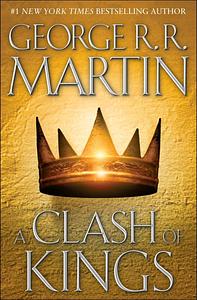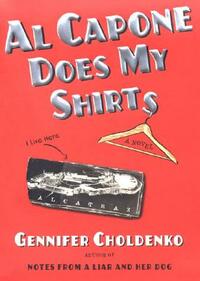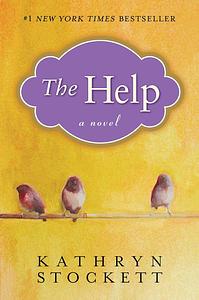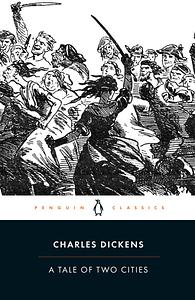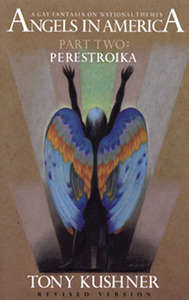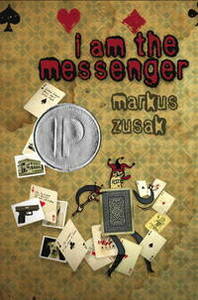Take a photo of a barcode or cover
isaacblevins's Reviews (460)
When I was in college I had to read Jane Austen's Emma. The experience was not a good one - I hated the main character because she seemed a busybody and was generally annoying. Because of this, I avoided Austen's other novels like the plague, guessing that they would all be full of marriage obsessed air-heads.
It was with trepidation that I picked up Pride and Prejudice to, once again, give Jane Austen the benefit of the doubt. After all, it is one of the most beloved novels of all time - read and reread by scores of fans. Surely there was something I had missed. As it turns out, there was a lot I have missed.
Pride and Prejudice is a delightful novel that I thoroughly enjoyed. What changed my mind about Austen? I realized that while some of her characters are obsessed with marriage and manners - she, is not. The novel is written tongue-in-cheek and skewers those who Austen found as annoying as I do to this day. I was shocked to discover how blunt the author is in her criticism of empty headed Mrs. Bennet and how hilariously funny the observations if her husband, Mr. Bennet, are. As for the central characters of Elizabeth and Mr. Darcy, I found them to be realistic, enchanting and wonderfully modern. Elizabeth Bennet has survived as a cherished character because she is so timeless - she is bold and modern and unafraid to speak her mind in any situation.
The one character that I found insipid and annoying was Lydia - but Austen intended her to be so...and she came to a rather satisfying end...which I appreciated greatly.
Alright, Jane, you've won me over...I apologize for hating you all these years.
It was with trepidation that I picked up Pride and Prejudice to, once again, give Jane Austen the benefit of the doubt. After all, it is one of the most beloved novels of all time - read and reread by scores of fans. Surely there was something I had missed. As it turns out, there was a lot I have missed.
Pride and Prejudice is a delightful novel that I thoroughly enjoyed. What changed my mind about Austen? I realized that while some of her characters are obsessed with marriage and manners - she, is not. The novel is written tongue-in-cheek and skewers those who Austen found as annoying as I do to this day. I was shocked to discover how blunt the author is in her criticism of empty headed Mrs. Bennet and how hilariously funny the observations if her husband, Mr. Bennet, are. As for the central characters of Elizabeth and Mr. Darcy, I found them to be realistic, enchanting and wonderfully modern. Elizabeth Bennet has survived as a cherished character because she is so timeless - she is bold and modern and unafraid to speak her mind in any situation.
The one character that I found insipid and annoying was Lydia - but Austen intended her to be so...and she came to a rather satisfying end...which I appreciated greatly.
Alright, Jane, you've won me over...I apologize for hating you all these years.
After finishing A Game of Thrones, I took some time before diving into the second book in the series. When the time came to pick up A Clash of Kings, I was more than ready to find out what was to happen in the seven kingdoms. The novel did not disappoint. Once again, what stands out more than anything are the characterizations that George R.R. Martin so deftly creates. Meeting these characters once again was like catching up with good friends. My favorites: Jon Snow and Tyrion, each become even more complex and I continue wonder about the mysterious Daenerys Targaryen and the role she will eventually fill.
I always read something in between books in a series or even simply books by the same author. With the ever increasing length of Martin's books I definately have to take breaks in between - they're quite a commitment (although an ultimately rewarding one). As a result, it may take me a little while before I forge on in the Song of Fire and Ice...but I will continue sooner, rather than later, because this is a series I absolutely look forward to continuing.
I always read something in between books in a series or even simply books by the same author. With the ever increasing length of Martin's books I definately have to take breaks in between - they're quite a commitment (although an ultimately rewarding one). As a result, it may take me a little while before I forge on in the Song of Fire and Ice...but I will continue sooner, rather than later, because this is a series I absolutely look forward to continuing.
In the author's note at the end of The Help, Kathryn Stockett speaks of the dual emotions that come along with being Southern. She acknowledges the shame that comes along with our guilt, but also the fierce pride that has maintained our peculiar way of life. As a Southerner I know exactly how Mrs. Stockett feels when she says that the South is like our mother: we're allowed to complain about her...but nobody else can unless she is their mother too. Reading The Help, I was filled with emotions that ran from anger to elation and back again as I recognized characters I have known my entire life. Once again I face the shame that belongs to our history of racism - but also the pride that belongs to the strength of those who refused to back down until something changed.
The Help is a brilliant novel and deserves a place alongside the works of Alice Walker, Toni Morrison, and Harper Lee. Kathryn Stockett brings such tenderness and realism to a story that could easily have been made a caricature. While I read I heard the voices of the characters so distinctly that I felt as if I could easily pass them on the street when next I drove through town. A white author takes a big risk when writing in the dialect of another race. We have seen such horribly examples given over to stereotype that we shudder even at of a modern attempt. The portions of the novel told by Aibileen and Minni are so vivid and true that the choice to have them speak any other way would have been disrespectful to their characters.
As I finished the book I found myself savoring the final page in a way that only comes when one has read something great. I hope that the novel continues to be read and that it continues to inspire us to recognize the courage of those who lived through such heartbreaking times....but also that our failings did not end in the 1960's and that there is still much to be done.
The Help is a brilliant novel and deserves a place alongside the works of Alice Walker, Toni Morrison, and Harper Lee. Kathryn Stockett brings such tenderness and realism to a story that could easily have been made a caricature. While I read I heard the voices of the characters so distinctly that I felt as if I could easily pass them on the street when next I drove through town. A white author takes a big risk when writing in the dialect of another race. We have seen such horribly examples given over to stereotype that we shudder even at of a modern attempt. The portions of the novel told by Aibileen and Minni are so vivid and true that the choice to have them speak any other way would have been disrespectful to their characters.
As I finished the book I found myself savoring the final page in a way that only comes when one has read something great. I hope that the novel continues to be read and that it continues to inspire us to recognize the courage of those who lived through such heartbreaking times....but also that our failings did not end in the 1960's and that there is still much to be done.
Billy Pilgrim has become unstuck in time. As a result, he travels backwards and forwards, in and out of his past, his present and his future. At various times these travels take him to the fire-bombing of Dresden in WWII, his optometry practice, and a zoo where he is kept and observed by aliens from Tralfamadore.
This would all seem quite odd if it wasn't written by Kurt Vonnegut...and if it didn't make so much damned sense.
Like any good liberal college student, I read Vonnegut's most famous novel as a young man and I enjoyed it - although I can't say that much stuck with my from that first reading. Feeling that I needed a refresher, I picked up Slaughterhouse Five and dove right in. What I found was a very wise and masterful piece of fiction. In telling us of the remarkable life of Billy Pilgrim, Vonnegut makes us face our own thoughts about mortality, humanity, honesty...and just about any other "-ty" you can think of.
If I had to give a straightforward summary of the novel, I'm not sure that I could, but that's part of the genius of Vonnegut. It is a novel about nothing...that just so happens to be about everything. I can't imagine how an author can sit and plot such a work that skips in and out of time, making Pilgrim walk from one situation into another that perfectly complements it (though they happened decades apart).
Brilliant, chilling, funny and profound, Slaughterhouse Five deserves its place in the history of great American novels.
This would all seem quite odd if it wasn't written by Kurt Vonnegut...and if it didn't make so much damned sense.
Like any good liberal college student, I read Vonnegut's most famous novel as a young man and I enjoyed it - although I can't say that much stuck with my from that first reading. Feeling that I needed a refresher, I picked up Slaughterhouse Five and dove right in. What I found was a very wise and masterful piece of fiction. In telling us of the remarkable life of Billy Pilgrim, Vonnegut makes us face our own thoughts about mortality, humanity, honesty...and just about any other "-ty" you can think of.
If I had to give a straightforward summary of the novel, I'm not sure that I could, but that's part of the genius of Vonnegut. It is a novel about nothing...that just so happens to be about everything. I can't imagine how an author can sit and plot such a work that skips in and out of time, making Pilgrim walk from one situation into another that perfectly complements it (though they happened decades apart).
Brilliant, chilling, funny and profound, Slaughterhouse Five deserves its place in the history of great American novels.

